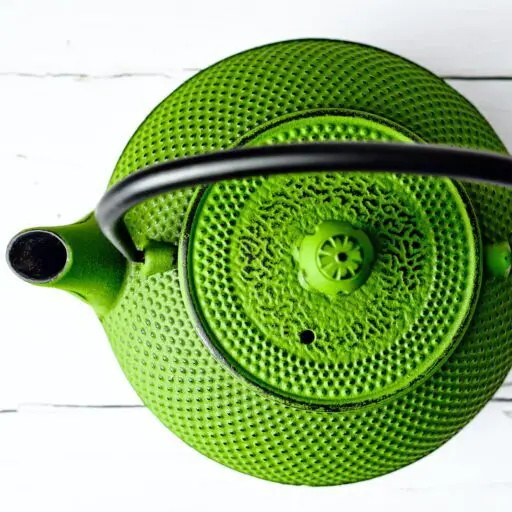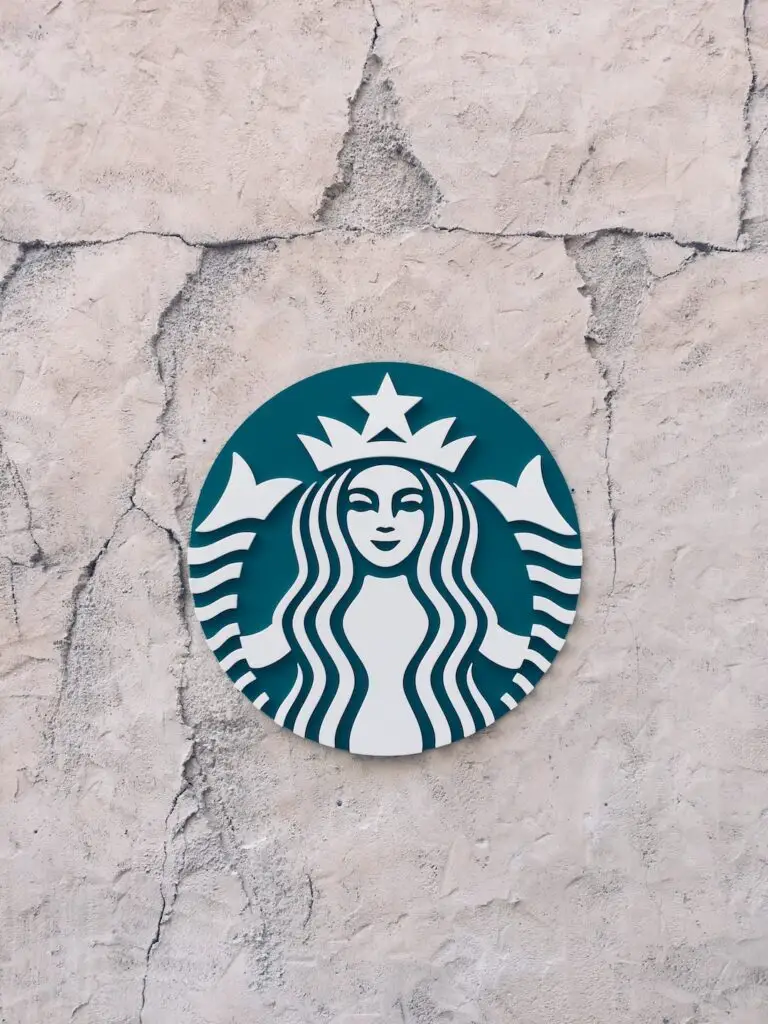Support our educational content for free when you purchase through links on our site. Learn more
10 Biggest Tea Brands in the World You Must Know (2025) 🍵
Ever wondered which tea brands are truly ruling the global tea scene? From the iconic yellow label of Lipton to the artisanal elegance of Dilmah’s pure Ceylon teas, the world’s biggest tea brands have stories as rich and complex as the brews they produce. Did you know that after water, tea is the most consumed beverage worldwide, with black tea making up nearly 80% of global production? Yet behind every cup lies a fascinating blend of history, innovation, and sustainability efforts that few casual drinkers ever glimpse.
In this article, we’ll steep you in the world of the top 10 tea giants, revealing their unique strengths, challenges, and what makes them stand out in 2025. Whether you’re a casual sipper or a budding connoisseur, you’ll discover how to choose the perfect brand for your taste buds and values. Ready to unlock the secrets behind your favorite tea bags? Let’s pour in!
Key Takeaways
- Unilever’s Lipton leads globally, blending mass appeal with ambitious sustainability goals.
- Tata Consumer Products and Twinings offer a mix of heritage and innovation, especially in India and the UK.
- Family-owned brands like Dilmah and Bigelow emphasize quality, ethical sourcing, and artisanal craftsmanship.
- Sustainability is reshaping the tea industry, with certifications like Rainforest Alliance and Fair Trade becoming essential.
- Tea innovation is booming, from bold new flavors to convenient ready-to-drink formats.
- Regional giants like Ten Ren (China) and KTDA (Kenya) highlight the diversity of tea culture worldwide.
👉 Shop the biggest tea brands here:
- Lipton: Amazon | Walmart | Lipton Official
- Twinings: Amazon | Walmart | Twinings Official
- Dilmah: Amazon | Dilmah Official
- Bigelow Tea: Amazon | Bigelow Official
Dive in and find your perfect brew!
Table of Contents
- Quick Tips and Facts About the Biggest Tea Brands 🌟
- Steeping Through Time: The Rich History of Global Tea Giants 🍵
- 1. Unilever: The Titan Behind Lipton and Brooke Bond 🌍
- 2. Tata Consumer Products: India’s Tea Powerhouse 🇮🇳
- 3. Twinings: The British Legacy of Premium Tea 🍂
- 4. Dilmah: Sri Lanka’s Pure Ceylon Tea Champion 🇱🇰
- 5. Bigelow Tea Company: America’s Family-Owned Tea Icon 🇺🇸
- Global Tea Market Trends: What’s Brewing Worldwide? 🌐
- Sustainability in Tea: How Big Brands Are Going Green 🌱
- Tea Innovation and Marketing: From Traditional to Trendy 🚀
- Regional Tea Giants: Spotlight on Leading Brands by Country 🌏
- How to Choose the Right Tea Brand for Your Taste Buds 🎯
- Tea Brand Reviews: Consumer Favorites and Critiques ⭐️
- Tea Packaging and Branding: Why It Matters More Than You Think 📦
- FAQs About the Biggest Tea Brands in the World ❓
- Conclusion: Brewing the Perfect Cup with the World’s Biggest Tea Brands ☕️
- Recommended Links for Tea Lovers and Industry Insights 🔗
- Reference Links: Sources Behind Our Tea Expertise 📚
Quick Tips and Facts About the Biggest Tea Brands 🌟
Before we dive into the fascinating world of tea giants, let’s brew up some quick facts to whet your appetite:
- Did you know that after water, tea is the most consumed beverage globally? 🤯 That’s right! Read more about the most famous tea brands here!
- Black tea reigns supreme, accounting for a whopping 78% of global tea production.
- China, the birthplace of tea, is the world’s largest tea producer. 🇨🇳
- The tea industry is worth billions of dollars, with major players vying for a spot on your kitchen shelf.
Now, let’s unpack the stories behind those tea bags and loose leaves. 🫖
Steeping Through Time: The Rich History of Global Tea Giants 🍵
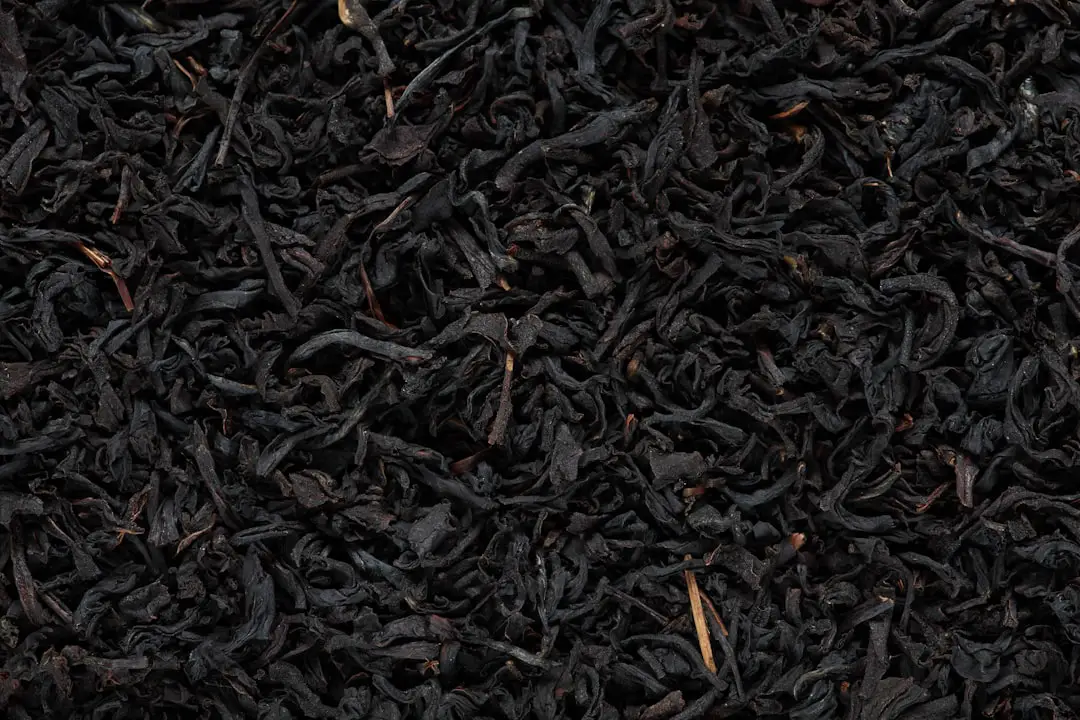
From ancient rituals to modern-day mass production, the journey of tea is as rich and varied as its flavors. Let’s travel back in time to explore the origins of some of the biggest tea brands in the world:
From Humble Beginnings to Global Empires
Many tea giants started small, often with a single entrepreneur’s passion for quality tea. Take Thomas Lipton, for example. He revolutionized the industry in the late 19th century by making tea affordable for the masses. His vision? To bring “tea from the tea garden to the teapot” directly, cutting out the middlemen and lowering prices.
The Rise of Tea Conglomerates
Over the years, mergers and acquisitions have shaped the tea landscape. Today, multinational corporations like Unilever and Tata Consumer Products own a portfolio of iconic tea brands. These giants leverage their global reach to source tea from various regions, ensuring a consistent supply for tea lovers worldwide.
The Enduring Legacy of Family-Owned Tea Businesses
Amidst the corporate giants, family-owned tea companies like Harney & Sons and Bigelow Tea Company continue to thrive. These brands often prioritize traditional tea-making methods and a commitment to quality, passed down through generations.
1. Unilever: The Titan Behind Lipton and Brooke Bond 🌍
Unilever, a consumer goods behemoth, holds a commanding position in the global tea market. Their brand portfolio reads like a who’s who of the tea world:
- Lipton: The world’s best-selling tea brand, known for its iconic yellow label and wide availability.
- Brooke Bond: A household name in India and other countries, offering a range of black tea blends.
- PG Tips: The UK’s No.1 tea brand, famous for its pyramid-shaped tea bags.
Unilever’s dominance stems from its massive distribution network, aggressive marketing, and diverse tea offerings. However, the company has faced criticism for its environmental and labor practices in tea-producing regions. In response, Unilever has pledged to source all its tea sustainably by 2025.
2. Tata Consumer Products: India’s Tea Powerhouse 🇮🇳
Tata Consumer Products, a subsidiary of the Tata Group, is a major player in the global tea industry. With a strong foothold in India, the world’s second-largest tea producer, Tata boasts a portfolio of beloved brands:
- Tetley: A global tea brand known for its round tea bags and wide range of black tea blends.
- Tata Tea: A leading tea brand in India, offering a variety of black tea blends, including the iconic Tata Tea Gold.
Tata Consumer Products is committed to sustainable tea production through its Tata Tea Trust, which works to improve the lives of tea workers and their communities.
3. Twinings: The British Legacy of Premium Tea 🍂
Twinings, a British institution founded in 1706, is synonymous with premium tea. Known for its distinctive green packaging and wide variety of tea blends, Twinings offers a taste of British heritage:
- English Breakfast Tea: A classic black tea blend that’s a staple in many British households.
- Earl Grey Tea: A fragrant black tea flavored with bergamot, a type of citrus fruit.
- Herbal Infusions: A range of caffeine-free herbal teas, including chamomile, peppermint, and rooibos.
Twinings has successfully positioned itself as a premium tea brand, appealing to consumers who value quality and tradition. The company is also committed to ethical sourcing through its Sourced with Care program.
4. Dilmah: Sri Lanka’s Pure Ceylon Tea Champion 🇱🇰
Dilmah, a family-owned tea company from Sri Lanka, is renowned for its commitment to quality and sustainability. The brand focuses on single-origin Ceylon tea, known for its distinctive flavor and aroma:
- Single Estate Teas: Teas sourced from a single tea estate, offering a unique terroir-driven flavor profile.
- Flavored Black Teas: Black tea blends infused with natural flavors, such as vanilla, strawberry, and mango.
- Green Teas: A selection of green teas, including pure green tea and flavored varieties.
Dilmah’s founder, Merrill J. Fernando, is a pioneer in the tea industry, advocating for ethical tea production and fair trade practices. The company’s MJF Charitable Foundation supports various social and environmental initiatives in Sri Lanka.
5. Bigelow Tea Company: America’s Family-Owned Tea Icon 🇺🇸
Bigelow Tea Company, a family-owned business based in the United States, has been a household name for generations. Known for its wide variety of tea bags, Bigelow offers something for every tea lover:
- Classic Black Teas: A range of black tea blends, including English Breakfast, Earl Grey, and Irish Breakfast.
- Flavored Black and Green Teas: A wide selection of flavored teas, such as Constant Comment (black tea with orange rind and spices) and Green Tea with Pomegranate.
- Herbal Teas: A variety of caffeine-free herbal teas, including chamomile, peppermint, and ginger.
Bigelow Tea Company is committed to sustainability and ethical sourcing through its Bigelow Benefits program, which supports tea-growing communities and environmental initiatives.
Global Tea Market Trends: What’s Brewing Worldwide? 🌐
The global tea market is a dynamic landscape, influenced by evolving consumer preferences, technological advancements, and a growing awareness of sustainability. Here are some key trends shaping the industry:
The Rise of Specialty Tea and Premiumization
Consumers are increasingly seeking out unique and high-quality tea experiences. This trend has led to a surge in demand for specialty teas, such as single-origin teas, rare tea cultivars, and artisanal tea blends. Premium tea brands are capitalizing on this trend by offering exclusive tea selections, personalized tea experiences, and sophisticated packaging.
The Health and Wellness Boom
Tea, particularly green tea, is renowned for its numerous health benefits. As consumers become more health-conscious, they are turning to tea as a healthy and flavorful alternative to sugary drinks. Tea brands are responding by developing functional tea blends that target specific health concerns, such as stress reduction, immune support, and improved digestion.
The Convenience Factor
In our fast-paced world, convenience is key. Tea brands are innovating with convenient tea formats, such as ready-to-drink teas, cold brew tea bags, and tea concentrates. These on-the-go options cater to busy lifestyles while still delivering a flavorful and refreshing tea experience.
The Sustainability Imperative
Consumers are increasingly concerned about the environmental and social impact of their purchasing decisions. This has led to a growing demand for sustainably sourced tea. Tea brands are responding by implementing sustainable agricultural practices, supporting fair trade initiatives, and reducing their environmental footprint.
Sustainability in Tea: How Big Brands Are Going Green 🌱
The tea industry faces growing pressure to address its environmental and social impact. From deforestation and pesticide use to labor exploitation and fair trade practices, the challenges are complex. Here’s how big tea brands are stepping up to promote sustainability:
Certifications and Standards
- Rainforest Alliance Certified: This certification ensures that tea is grown on farms that conserve biodiversity, protect wildlife, and improve the livelihoods of workers. Unilever, the world’s largest tea company, has committed to sourcing all its tea sustainably, starting with Rainforest Alliance certification for its Lipton and PG Tips brands.
- Fair Trade Certified: This certification guarantees fair prices and wages for tea workers, as well as safe working conditions and environmental protection. Brands like Clipper Tea and Numi Organic Tea offer a wide selection of Fair Trade Certified teas.
- Organic Certification: Organic tea is grown without the use of synthetic pesticides, herbicides, or fertilizers, promoting biodiversity and soil health. Brands like Bigelow, Stash Tea, and Traditional Medicinals offer a variety of organic tea options.
Direct Sourcing and Farmer Partnerships
Many tea brands are moving away from traditional auction systems and establishing direct relationships with tea farmers. This allows for greater transparency and traceability in the supply chain, ensuring fair prices for farmers and sustainable farming practices. Dilmah, for example, sources most of its tea directly from its own tea gardens in Sri Lanka, ensuring quality and ethical sourcing.
Environmental Initiatives
Tea brands are implementing various environmental initiatives to reduce their ecological footprint. These include:
- Reducing water consumption through efficient irrigation techniques.
- Minimizing waste through composting and recycling programs.
- Protecting biodiversity by preserving natural habitats within and around tea gardens.
- Investing in renewable energy sources, such as solar power.
Tea Innovation and Marketing: From Traditional to Trendy 🚀
The tea industry is far from stagnant. Brands are constantly innovating to capture the attention of modern tea drinkers, blending traditional wisdom with contemporary trends. Here’s a glimpse into the exciting world of tea innovation and marketing:
Flavor Innovation: Beyond the Expected
Move over, Earl Grey! Tea brands are experimenting with bold and unexpected flavors to entice adventurous palates. Think:
- Floral infusions: Hibiscus, lavender, rose, and elderflower are adding delicate floral notes to teas and herbal blends.
- Spicy blends: Chili peppers, ginger, turmeric, and black pepper are bringing the heat, often paired with chocolate or citrus for a balanced kick.
- Superfood additions: Matcha, turmeric, goji berries, and ashwagandha are being incorporated for their purported health benefits and unique flavor profiles.
Format Evolution: Tea on Your Terms
Gone are the days when tea was confined to a teapot and china cup. Brands are embracing convenience and versatility with innovative formats like:
- Ready-to-drink teas: Bottled, canned, and even nitro-infused teas offer a grab-and-go option for busy individuals.
- Cold brew tea bags: Specially designed for cold brewing, these tea bags yield a smoother, less bitter iced tea.
- Tea concentrates: These concentrated tea extracts allow you to customize the strength and sweetness of your beverage.
Marketing Magic: Crafting an Experience
Tea brands are realizing that it’s not just about the beverage itself—it’s about crafting an experience. Marketing strategies now focus on:
- Storytelling: Brands are sharing the origins of their tea, highlighting the people and processes behind each cup.
- Lifestyle branding: Tea is being positioned as an integral part of a healthy and mindful lifestyle, often associated with yoga, meditation, or simply taking a moment for oneself.
- Social media engagement: Instagrammable tea moments, influencer collaborations, and interactive campaigns are creating a buzz around tea.
Regional Tea Giants: Spotlight on Leading Brands by Country 🌏
While global tea giants dominate supermarket shelves, each country boasts its own regional tea champions, deeply rooted in local culture and taste preferences. Let’s embark on a tea tour around the world, exploring these regional powerhouses:
China’s Tea Masters: Ten Ren and Beyond 🇨🇳
As the birthplace of tea, China holds a special place in the tea world. Here, tea is more than just a beverage—it’s an art form, steeped in tradition and ceremony. While countless tea houses and small-scale producers thrive in China, some brands have risen to prominence, both domestically and internationally:
- Ten Ren Tea: Established in 1953, Ten Ren is a global tea company specializing in high-quality Chinese teas, from delicate green teas to robust oolong teas. With a focus on traditional tea processing methods and a commitment to quality, Ten Ren has become synonymous with authentic Chinese tea.
- China Tea Company: This state-owned enterprise is one of the largest tea producers in China, exporting a wide variety of teas to over 50 countries. China Tea Company plays a significant role in shaping the global tea market, particularly for black tea production.
Kenya’s Tea Powerhouses: From Gardens to Global Cups 🇰🇪
Kenya is renowned for its exceptional black tea, characterized by its bright, brisk flavor and rich, coppery hue. The country’s high altitude, volcanic soils, and ample sunshine create ideal conditions for tea cultivation. Here are some of Kenya’s leading tea producers:
- Kenya Tea Development Agency (KTDA): A cooperative of over 600,000 small-scale tea farmers, KTDA manages the production and sale of tea from its members, ensuring fair prices and sustainable farming practices. KTDA teas are highly sought after by tea blenders worldwide for their quality and consistency.
- Kericho Gold: A premium tea brand owned by KTDA, Kericho Gold offers a range of single-origin Kenyan teas, known for their exceptional quality and distinctive flavor profiles. The brand focuses on sustainable and ethical tea production, supporting local communities and preserving the environment.
Japan’s Artisanal Tea Brands: Matcha and More 🇯🇵
Japan’s tea culture is deeply intertwined with Zen Buddhism, emphasizing mindfulness, simplicity, and harmony. Japanese tea ceremonies are renowned for their ritualistic precision and reverence for tea. While green tea, particularly matcha, takes center stage in Japan, the country also produces exceptional black tea and oolong tea. Here are some notable Japanese tea brands:
- Ito En: One of Japan’s largest tea companies, Ito En offers a wide range of green teas, including matcha, sencha, and genmaicha (green tea with roasted brown rice). The brand is known for its commitment to quality and innovation, constantly developing new tea products and flavors.
- Harada Tea Processing Co., Ltd.: A family-owned tea company with a history spanning over a century, Harada Tea is renowned for its exceptional matcha, grown and processed using traditional methods. The brand’s matcha is highly prized by tea connoisseurs worldwide for its vibrant green color, smooth texture, and umami-rich flavor.
UK’s Tea Culture and Leading Brands 🇬🇧
Tea is practically synonymous with British culture. From afternoon tea parties to a comforting cuppa on a rainy day, tea is an integral part of British life. While the UK doesn’t grow its own tea, it’s a major importer and blender of tea from around the world. Here are some of the UK’s leading tea brands:
- PG Tips: Owned by Unilever, PG Tips is the UK’s No.1 tea brand, known for its pyramid-shaped tea bags and classic black tea blend. The brand has been a household staple for generations, offering a comforting and familiar taste of British tradition.
- Yorkshire Tea: A family-owned tea company based in Yorkshire, England, Yorkshire Tea is known for its robust and full-bodied black tea blend, perfectly suited for adding a splash of milk. The brand has gained a loyal following for its commitment to quality and its down-to-earth, Yorkshire charm.
Australia and New Zealand: Emerging Tea Markets Down Under 🇦🇺🇳🇿
While coffee culture has long reigned supreme in Australia and New Zealand, tea is experiencing a resurgence in popularity. Consumers are increasingly seeking out premium tea experiences, exploring a wider variety of tea types and flavors. Here are some notable tea brands making waves Down Under:
- T2: Founded in Melbourne, Australia, T2 has become a global tea brand, known for its vibrant and eclectic tea blends, stylish teaware, and immersive tea experiences. The brand has played a significant role in popularizing specialty tea and introducing consumers to new and exciting tea rituals.
- Dilmah: While Dilmah is a Sri Lankan tea brand, it has gained a strong foothold in Australia and New Zealand, appealing to consumers who value quality, sustainability, and ethical sourcing. Dilmah’s single-origin Ceylon teas and innovative tea blends have captured the attention of tea enthusiasts across the region.
How to Choose the Right Tea Brand for Your Taste Buds 🎯
With a dizzying array of tea brands vying for your attention, choosing the right one can feel overwhelming. But fear not, fellow tea lovers! We’re here to guide you through the tea aisle with confidence:
1. Identify Your Tea Type: Black, Green, White, or Herbal?
- Black Tea: Bold, robust, and full-bodied, black tea is perfect for those who enjoy a strong cuppa. Look for brands like PG Tips, Yorkshire Tea, and Kenyan tea brands for a classic black tea experience.
- Green Tea: Known for its delicate, grassy flavor and potential health benefits, green tea is a refreshing choice. Explore Japanese green tea brands like Ito En or Chinese green tea brands like Ten Ren.
- White Tea: The rarest and most delicate tea type, white tea offers a subtly sweet and floral flavor. Look for specialty tea brands or brands specializing in Chinese tea.
- Herbal Tea: Naturally caffeine-free, herbal teas offer a wide range of flavors and potential health benefits. Experiment with different herbal blends from brands like Traditional Medicinals, Celestial Seasonings, and Bigelow.
2. Consider Your Flavor Preferences: Sweet, Spicy, Floral, or Earthy?
- Sweet Tooth: If you enjoy a touch of sweetness in your tea, look for flavored black teas with caramel, vanilla, or chocolate notes. Fruit-infused teas, like those with berries or citrus, also offer a naturally sweet flavor.
- Spice Lover: For those who like a bit of heat, explore chai tea blends, ginger teas, or teas with black pepper or chili.
- Floral Fanatic: Embrace delicate floral notes with teas infused with lavender, rose, hibiscus, or elderflower.
- Earthy Palate: If you prefer earthy and grounding flavors, consider matcha, hojicha (roasted green tea), or teas with earthy notes like rooibos or yerba mate.
3. Explore Different Tea Formats: Loose Leaf, Tea Bags, or Ready-to-Drink?
- Loose Leaf Tea: Often considered the highest quality tea, loose leaf tea allows for greater control over brewing strength and flavor. It requires a tea infuser or strainer.
- Tea Bags: Convenient and mess-free, tea bags are perfect for a quick and easy cuppa. Look for brands that use high-quality tea leaves and avoid those with flimsy tea bags or artificial flavors.
- Ready-to-Drink Tea: Perfect for on-the-go consumption, ready-to-drink teas offer convenience without sacrificing flavor. Choose brands that use natural ingredients and avoid those with added sugars or artificial sweeteners.
4. Check for Certifications: Organic, Fair Trade, Rainforest Alliance
- Organic Certification: Ensures that the tea is grown without the use of synthetic pesticides, herbicides, or fertilizers.
- Fair Trade Certification: Guarantees fair prices and wages for tea workers, as well as safe working conditions and environmental protection.
- Rainforest Alliance Certification: Ensures that the tea is grown on farms that conserve biodiversity, protect wildlife, and improve the livelihoods of workers.
5. Don’t Be Afraid to Experiment!
The best way to find your perfect tea brand is to try different varieties and blends. Start with a few that pique your interest and gradually expand your tea horizons. You might be surprised at the diverse and delicious world of tea that awaits!
Tea Brand Reviews: Consumer Favorites and Critiques ⭐️
At Tea Brands™, we’re passionate about providing you with honest and insightful tea brand reviews. Our team of expert tea tasters rigorously evaluates each brand based on factors like:
- Tea Quality: We assess the aroma, flavor, body, and overall quality of the tea leaves.
- Sourcing Practices: We research the brand’s commitment to ethical sourcing, fair trade practices, and environmental sustainability.
- Product Variety: We consider the range of tea types, blends, and formats offered by the brand.
- Packaging and Presentation: We evaluate the functionality, aesthetics, and sustainability of the brand’s packaging.
- Value for Money: We consider the price point of the tea in relation to its quality and overall value.
Stay tuned for our upcoming in-depth tea brand reviews, where we’ll spill the tea (pun intended!) on your favorite brands and introduce you to hidden gems in the tea world.
Tea Packaging and Branding: Why It Matters More Than You Think 📦
In the competitive world of tea, packaging and branding play a crucial role in capturing consumer attention and conveying brand values. From the moment you spot a tea box on the shelf to the first whiff of aroma upon opening it, packaging influences your perception of the tea inside. Here’s why it matters:
1. Shelf Appeal and Brand Recognition
In a crowded marketplace, eye-catching packaging can make or break a tea brand. A visually appealing design, vibrant colors, and a clear brand identity can help a tea brand stand out from the competition and attract attention. Think about brands like T2, known for its bold and colorful packaging, or Twinings, instantly recognizable by its iconic green boxes.
2. Communicating Brand Values
Packaging is an opportunity for tea brands to communicate their values and connect with consumers on a deeper level. For example, brands that prioritize sustainability might use eco-friendly packaging materials or highlight their certifications on the box. Luxury tea brands might opt for sleek and sophisticated packaging to convey a sense of exclusivity and premium quality.
3. Protecting Tea Quality
Beyond aesthetics, tea packaging serves a crucial functional purpose: protecting the delicate tea leaves from moisture, light, and air, which can degrade their quality over time. High-quality tea packaging often features airtight seals, opaque materials, and resealable features to preserve freshness and flavor.
4. Enhancing the Tea Experience
Tea packaging can enhance the overall tea experience, from the moment you select a box to the last sip. Thoughtful packaging details, such as informative tasting notes, brewing instructions, or even a small message inside the box, can elevate the tea ritual and create a more engaging and enjoyable experience for the consumer.
5. Sustainability Considerations
As consumers become more environmentally conscious, tea brands are increasingly focusing on sustainable packaging solutions. This includes using recycled and recyclable materials, reducing packaging waste, and opting for biodegradable or compostable options. Look for brands that prioritize sustainability in their packaging choices.
FAQs About the Biggest Tea Brands in the World ❓
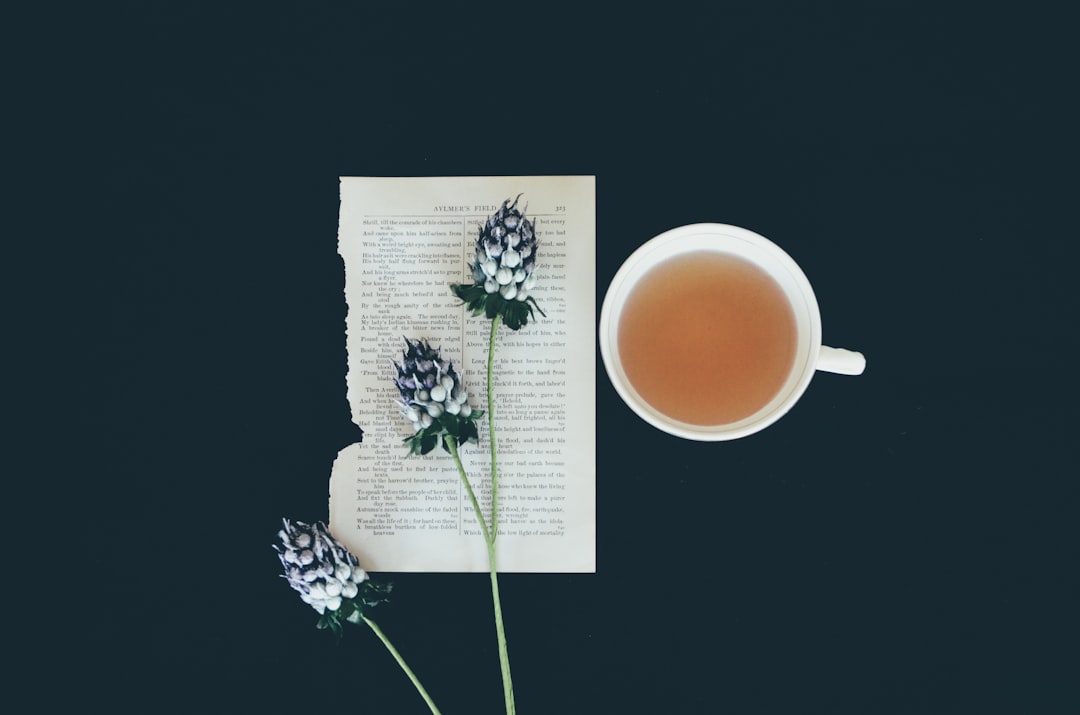
Here are some frequently asked questions about the biggest tea brands in the world:
Q: What is the most popular tea brand in the world?
A: Lipton, owned by Unilever, is widely considered the world’s best-selling tea brand, known for its iconic yellow label and global availability.
Q: What are some of the healthiest tea brands?
A: Many tea brands offer healthy options, particularly those specializing in green tea, herbal tea, and organic tea. Look for brands like Numi Organic Tea, Traditional Medicinals, and Yogi Tea, known for their focus on health and wellness.
Q: Which tea brands are the most sustainable?
A: Several tea brands prioritize sustainability, implementing ethical sourcing practices, supporting fair trade initiatives, and reducing their environmental impact. Look for certifications like Fair Trade Certified, Rainforest Alliance Certified, and organic certification. Brands like Dilmah, Clipper Tea, and Bigelow Tea Company are known for their commitment to sustainability.
Q: Where can I buy tea from these big brands?
A: Most major tea brands are widely available in supermarkets, grocery stores, and online retailers like Amazon. You can also find specialty tea brands and regional favorites in tea shops, health food stores, and online tea retailers.
Q: What are some tips for choosing the right tea brand for me?
A: Consider your preferred tea type (black, green, white, or herbal), flavor preferences (sweet, spicy, floral, or earthy), and desired tea format (loose leaf, tea bags, or ready-to-drink). Check for certifications like organic, Fair Trade, or Rainforest Alliance if those values are important to you. Don’t be afraid to experiment and try different brands and blends to find your perfect cuppa!
Conclusion: Brewing the Perfect Cup with the World’s Biggest Tea Brands ☕️
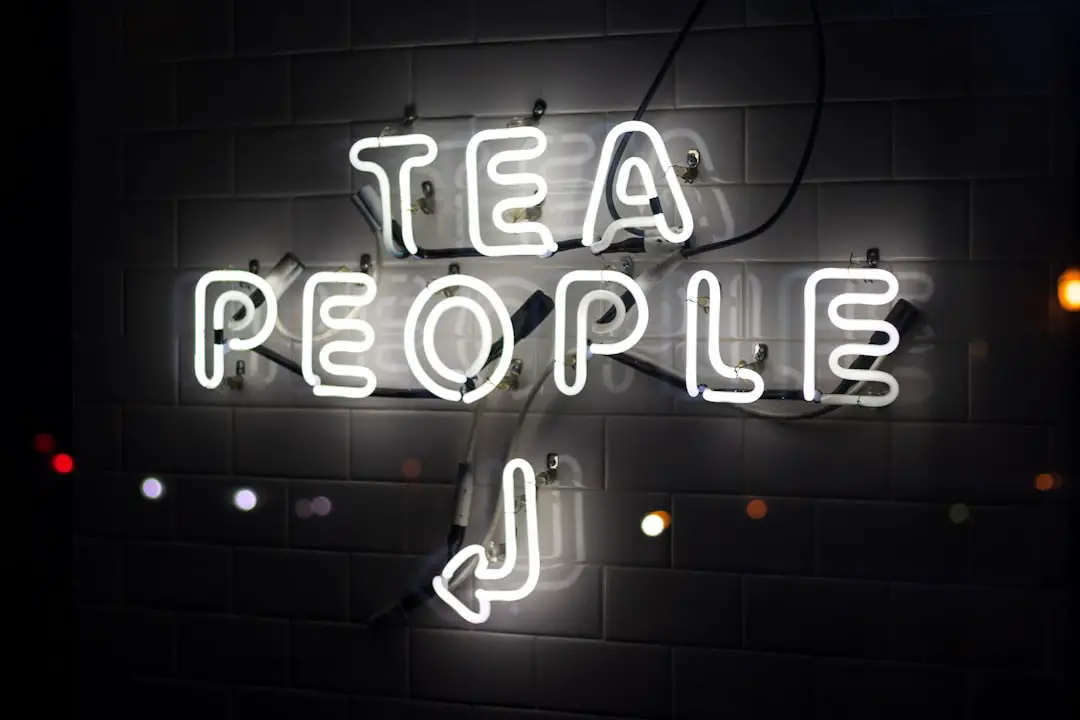
Phew! What a steep journey through the world’s biggest tea brands we’ve had. From the global powerhouse Unilever with its iconic Lipton and PG Tips, to the family-owned charm of Bigelow Tea Company, and the artisanal finesse of Dilmah’s pure Ceylon teas — the tea landscape is as rich and diverse as the flavors in your teacup.
Positives across these brands include:
- Global reach and consistency: Brands like Lipton and Tetley ensure you get a reliable cup anywhere in the world.
- Commitment to sustainability: Unilever’s pledge to source all tea sustainably by 2025 and Dilmah’s ethical practices set a new standard.
- Variety and innovation: From Twinings’ classic blends to T2’s vibrant, trendy infusions, there’s a tea for every palate.
- Heritage and quality: Family-owned brands like Bigelow and Harney & Sons bring tradition and craftsmanship to your brew.
Negatives to consider:
- Some mass-market brands may sacrifice subtlety for consistency, leading to less nuanced flavor profiles.
- Sustainability efforts, while growing, are still uneven across the industry — always check certifications if this matters to you.
- Premium and artisanal teas often come at a higher price point, which might not fit every budget.
Our confident recommendation? Whether you’re a casual tea drinker or a budding connoisseur, start with the big names like Lipton or Twinings for everyday reliability, then explore regional gems like Dilmah or Ten Ren to deepen your tea journey. Don’t hesitate to experiment with different types and formats — your perfect cup is out there waiting!
Remember, tea is more than a drink — it’s a ritual, a moment of calm, and a global story steeped in culture and care. So go ahead, brew that cup, and savor the world’s finest teas one sip at a time. 🍃
Recommended Links for Tea Lovers and Industry Insights 🔗
Ready to explore or stock up on your favorite teas? Here are some curated shopping links and resources to get you started:
- Lipton Tea: Amazon | Walmart | Lipton Official Website
- Tata Tea & Tetley: Amazon | Walmart | Tetley Official Website
- Twinings: Amazon | Walmart | Twinings Official Website
- Dilmah: Amazon | Walmart | Dilmah Official Website
- Bigelow Tea: Amazon | Walmart | Bigelow Official Website
- Ten Ren Tea: Amazon | Ten Ren Official Website
- T2 Tea: Amazon | T2 Official Website
Books for deeper tea knowledge:
- The Story of Tea: A Cultural History and Drinking Guide by Mary Lou Heiss & Robert J. Heiss — Amazon Link
- The Tea Enthusiast’s Handbook: A Guide to Enjoying the World’s Best Teas by Mary Lou Heiss — Amazon Link
- Tea: History, Terroirs, Varieties by Kevin Gascoyne et al. — Amazon Link
FAQs About the Biggest Tea Brands in the World ❓
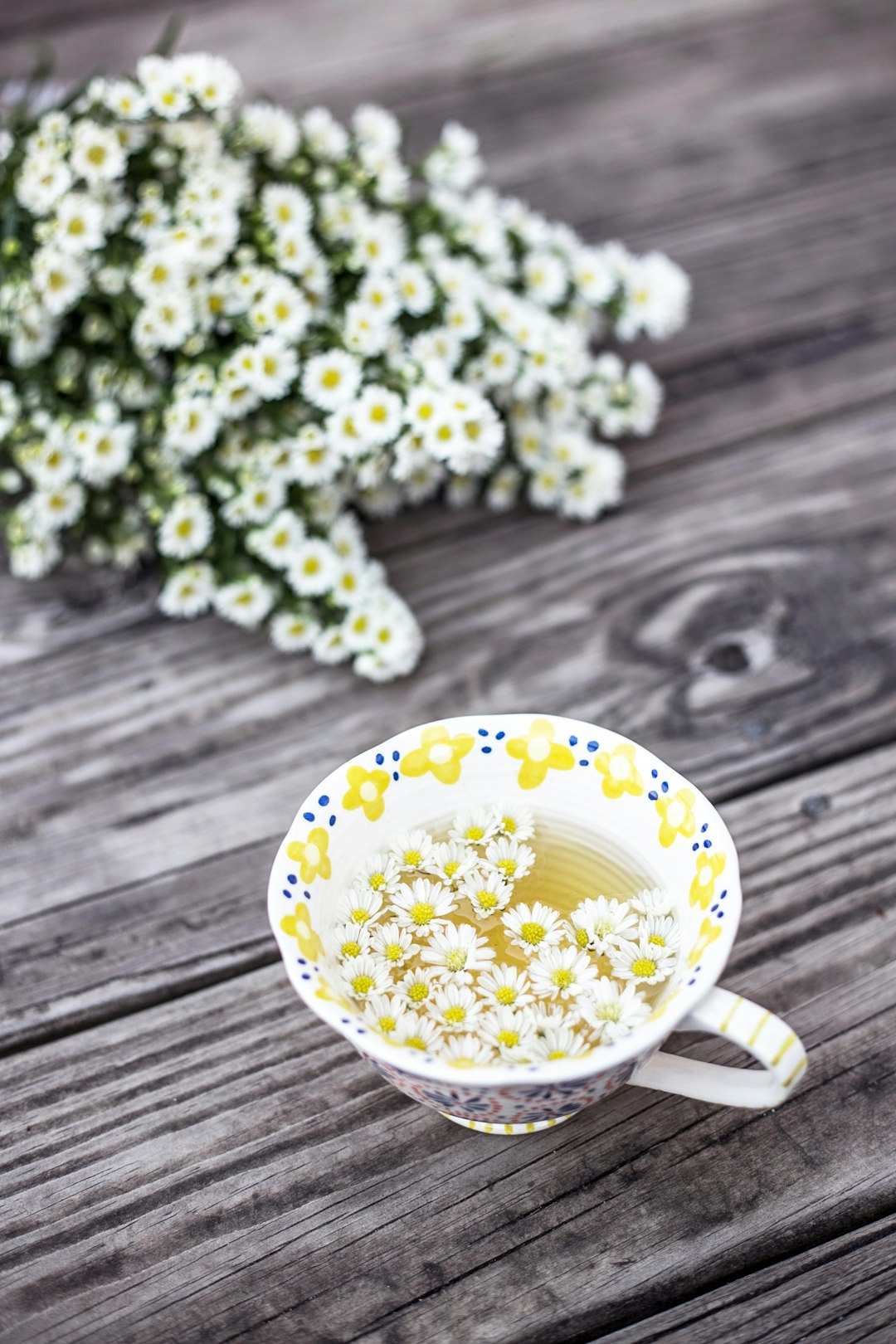
What are the top 5 tea brands in the world and their specialties?
The top 5 tea brands, each with unique strengths, are:
- Lipton (Unilever): The global leader, famous for accessible black teas and mass-market appeal.
- Tetley (Tata Consumer Products): Known for its round tea bags and broad range of black and green teas.
- Twinings (Associated British Foods): Premium blends with a rich heritage, including Earl Grey and English Breakfast.
- Dilmah: Sri Lankan single-origin Ceylon teas with a strong ethical and sustainability focus.
- Bigelow Tea Company: Family-owned U.S. brand offering classic and flavored teas with a commitment to quality.
Each brand caters to different consumer needs — from affordability and convenience to artisanal quality and ethical sourcing.
How do luxury tea brands differ from regular tea brands in terms of quality and pricing?
Luxury tea brands prioritize hand-picked, whole-leaf teas, often from single estates or rare cultivars, ensuring complex flavor profiles and freshness. They invest in artisanal processing methods and often offer limited edition or seasonal teas. Packaging is usually elegant and designed to enhance the tea experience.
Regular brands focus on mass production, often using fannings or dust (smaller tea particles) for quicker brewing and affordability. Pricing reflects this scale, with luxury teas commanding a premium due to their quality, rarity, and presentation.
Which tea brand is the largest producer of green tea globally and what makes their products unique?
Ito En, based in Japan, is the largest producer of green tea globally. Their products stand out due to:
- Use of traditional Japanese cultivation and processing techniques preserving umami and freshness.
- A wide range of green teas, including matcha, sencha, and genmaicha, catering to both traditional and modern tastes.
- Innovation in packaging and ready-to-drink formats, making green tea accessible worldwide.
Their commitment to quality and authenticity has made them a trusted name in green tea.
What are some popular tea brands that offer organic and fair-trade tea options for environmentally conscious consumers?
For eco-conscious tea lovers, these brands shine:
- Numi Organic Tea: Certified organic and Fair Trade, offering a wide range of herbal and traditional teas.
- Clipper Tea: UK-based brand with a strong commitment to Fair Trade and organic certification.
- Traditional Medicinals: Specializes in herbal teas with organic and sustainable sourcing.
- Bigelow Tea: Offers a selection of organic teas and supports sustainable farming practices.
- Dilmah: Focuses on ethical sourcing and sustainability, with some organic offerings.
Look for Fair Trade, Rainforest Alliance, and USDA Organic certifications on packaging to ensure your tea supports environmental and social responsibility.
How do tea brands ensure sustainability and fair labor practices in their supply chains?
Leading tea brands implement multi-faceted approaches including:
- Certification programs like Rainforest Alliance and Fair Trade to audit farms and ensure compliance.
- Direct sourcing from tea estates and cooperatives to improve transparency and provide fair prices.
- Community development projects supporting education, healthcare, and infrastructure for tea workers.
- Environmental stewardship initiatives to reduce pesticide use, conserve water, and protect biodiversity.
Unilever’s commitment to sustainable sourcing by 2025 is a prime example of industry-wide efforts to improve livelihoods and environmental impact. Learn more here.
Reference Links: Sources Behind Our Tea Expertise 📚
- Unilever Official Website – Tea Brands
- Tata Consumer Products – Tea Portfolio
- Twinings Official Website
- Dilmah Official Website
- Bigelow Tea Official Website
- Ten Ren Tea Official Website
- T2 Tea Official Website
- Rainforest Alliance – Unilever Sustainable Tea Commitment
- Wikipedia – List of Tea Companies
- Envision New – Top Tea Brands in the World
These sources provide authoritative insights and up-to-date information on the global tea industry, sustainability efforts, and brand portfolios — perfect for deepening your tea knowledge!
